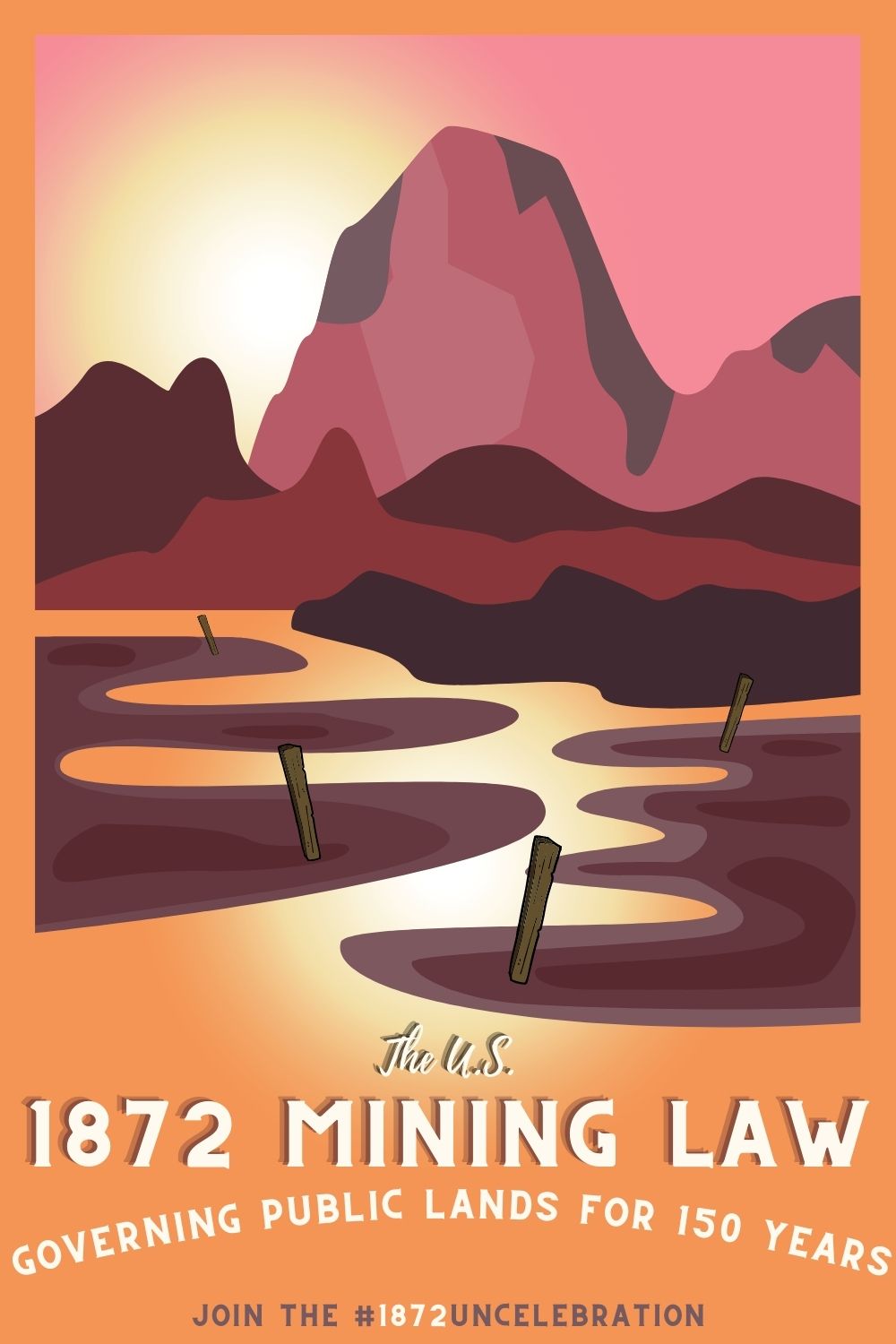Join the Uncelebration: 150 Years of the General Mining Act
On May 10, 1872, Congress passed the General Mining Act, also known as the 1872 Mining Law. In the 150 years since, no significant reforms to this antiquated law have been passed, despite major changes to mining technology.
 We’ve gone from prospectors and pickaxes, who could have each worked a ton or so of earth in a single day, to modern mining machinery that can move thousands of tons of ore in a single truck each day.
We’ve gone from prospectors and pickaxes, who could have each worked a ton or so of earth in a single day, to modern mining machinery that can move thousands of tons of ore in a single truck each day.
The 1872 Mining Law dictates how minerals can be mined on public lands. The law allows individuals to walk onto federal lands, literally stake claims, file some paperwork with the county, and obtain the exclusive right to mine the minerals on or under the land with the payment of an upfront and annual fee. The cost per acre in 1872 was between $2.50 to $5.00 per acre and has not been changed to this day.
Unlike the extraction of other natural resources on public lands, such as oil, gas, and coal, the mining law does not require the payment of an annual royalty for incredibly valuable minerals. The American public is missing out on billions of dollars in revenue that could, for example, fund critical services and address serious environmental issues created by hardrock mining.
The law was passed during a time when Congress was trying to fuel enthusiasm for western colonization and settlement, which led to decades of unlawful prospecting on Tribal lands. Additionally, the law has no environmental protections for land, air, or water. Hardrock mines have wreaked havoc on water resources, wildlife and landscapes. Mining has polluted 40% of the headwaters of Western watersheds, according to the U.S. Environmental Protection Agency.
According to this outdated law, mining is the “highest and best use” of the land, which means that public agencies can deny other uses of the land in favor of mining, despite any evidence that a parcel would be better suited for activities such as recreation, grazing, or environmental protection.
With reforms, we could improve mining processes on public lands; provide important protections for human health, landscapes, wildlife; and stop providing a sweet deal to companies that often leave our public lands perpetually polluted.
This year, we’re “uncelebrating” all the things that make this law horrible.
Here’s what happening:
Organizations around the country will be sharing stories and information about how the 1872 Mining Law impacts their communities.
At least once a month, share a post on social media relating to the theme and tag it #1872Uncelebration.
Want to get a monthly posting reminder? Sign up here.
Monthly themes:
January – hazardous waste
February – human health
March – community impacts
April – Public land
May – Reform/policy
June – environmental justice
July – water
August – wildlife/habitat
September – Global impact
October – royalties/economy
November – jobs/transition
December – impact to landscape (visual theme)
Looking for more information or resources about this campaign?
Learn more:
Stay Connected
P: (406) 443-2520
E: meic@meic.org
324 Fuller Ave, #C-8
Helena, MT 59601
Mailing addresses:
P.O. Box 1184, Helena, MT, 59624
225 W. Front, Missoula, MT, 59802

